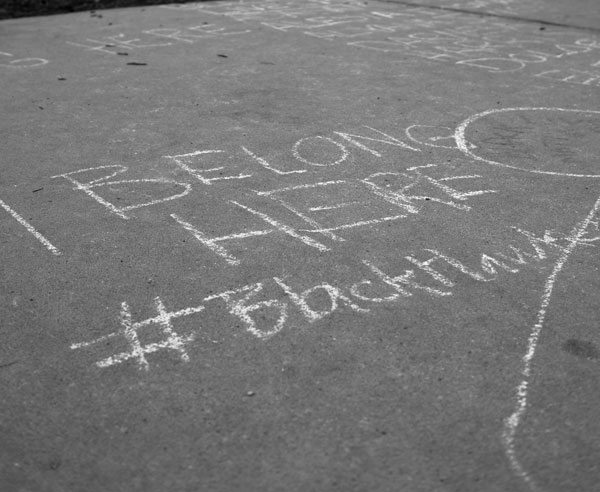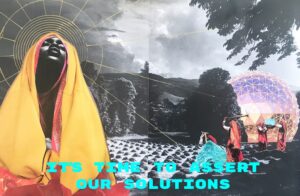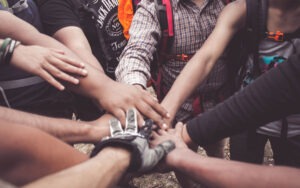
September 29, 2017; Washington Post and Atlanta Journal-Constitution
Making clear that there is a distinction between a social movement (or a social media movement) and an organization, a federal judge dismissed a lawsuit brought by an injured police officer in Baton Rouge, Louisiana, against Black Lives Matter and, ironically, DeRay Mckesson, who has been labelled one of its leading activists but who is in fact questionably connected to the movement’s leadership network. We wrote about this as far back ago as 2016:
Mckesson, who is an alumnus of [Teach for America (TFA)], made a name for himself during the Ferguson protests with his Twitter coverage of the action—and, not for nothing, he boasts nearly 300,000 followers on that medium. His campaign garnered more than $70,000 in donations within 24 hours of his announcement, but even in Mckesson’s own estimation, he is affiliated with neither the 26-chapter Black Lives Matter Network—founded by Opal Tometi, Alicia Garza, and Patrisse Cullors in 2012—nor with other organizing groups in that movement. In fact, the one organization that he seems to be firmly affiliated with long-term is TFA, which brings with it certain baggage as far as some critics are concerned.
In any case, U.S. District Judge Brian A. Jackson threw out the suit, which was filed anonymously. The ruling could be appealed, but Judge Jackson was clear in his writing that a movement is not the same as an organization and therefore cannot be sued.
In addition to bringing charges against Black Lives Matter (BLM) and the Black Lives Matter Network, the plaintiff also brought charges against Mckesson as a BLM leader for inciting others to commit violent acts that led to his injuries. Adding to the depth of the charges, the suit also included charges against the hashtag #BlackLivesMatter.
Judge Jackson was not kind in his dismissal statement:
Although many entities have utilized the phrase “black lives matter” in their titles or business designations, “Black Lives Matter” itself is not an entity of any sort. Therefore, all claims against “Black Lives Matter” must be dismissed because social movements lack the capacity to be sued.
Sign up for our free newsletters
Subscribe to NPQ's newsletters to have our top stories delivered directly to your inbox.
By signing up, you agree to our privacy policy and terms of use, and to receive messages from NPQ and our partners.
The judge further wrote that an “attempt to bring suit against a social movement and a hashtag evinces either a gross lack of understanding of the concept of capacity or bad faith.” As such, Jackson said, Black Lives Matter cannot be sued “in a similar way that a person cannot plausibly sue other social movements such as the Civil Rights movement, the LGBT rights movement, or the Tea Party movement.”
The charges against Mckesson of inciting others to riot were also summarily dismissed. Judge Jackson based this on two critical points: First, since Black Lives Matter is not an organization with a traditional leadership structure, Mckesson therefore cannot be sued as its leader. Second, Mckesson’s acts during the July 9, 2016 demonstration were well within the bounds of his constitutional right of association and that he only engaged in protected speech. The ruling said Mckesson could not be held liable for the actions of others.
Such distinctions between movements and organizations could have implications for future litigation. As observed in this case, it would be difficult to sue the Civil Rights Movement or the Tea Party, but easier to go after organizations like the NAACP or ALEC, each of which has an incorporation, a leadership structure, and nonprofit status. Basing a lawsuit on defensible positions against entities and individuals who can be sued makes a difference.
In this case, the positions taken were not defensible, at least in the legal interpretation of Judge Jackson. But this case is only one of two:
Mckesson and Black Lives Matter are named in a separate lawsuit in the same court, filed by an officer who was wounded when a gunman opened fire on law enforcement officers in Baton Rouge last July. The gunman, Gavin Long, killed three officers and injured three others in the ambush-style attack before being fatally shot by authorities. He wrote in a suicide note that his actions were a “necessary evil” designed to retaliate against law enforcement.
The officer’s lawsuit, which is still pending, accuses Black Lives Matter, Mckesson and other prominent activists of inciting the violence. They have denied wrongdoing.
As social movements such as MoveOn, Indivisible, and the Tea Party proliferate, further efforts could arise to blame them and legally implicate them for actions linked to their philosophies. Although it was summarily dismissed, the linking of a hashtag to a violent act should give some pause to how social movements are perceived in this era of social media. It may be a teachable moment on the value of movements versus the value of organizations. However, a hidden story may be just who is in fact a leader of a movement and who isn’t. Who determines that—the media, the person claiming to be leader, the movement? BLM has been quiet on the “Mckesson as BLM leader” saga, but this story shows how convoluted it can get.—Carole Levine and Cyndi Suarez













